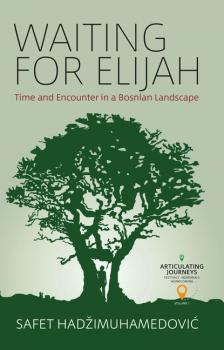ТОП просматриваемых книг сайта:
Articulating Journeys: Festivals, Memorials, and Homecomings
Скачать книги из серии Articulating Journeys: Festivals, Memorials, and HomecomingsTravelling towards Home - Группа авторов
Articulating Journeys: Festivals, Memorials, and HomecomingsАннотация
As we grapple with a growing refugee crisis, a hardening of anti-immigration sentiment, and deepening communal segregation in many parts of the developed world, questions of the nature of home and homemaking are increasingly critical. This collection brings ethnographic insight into the practices of homemaking, exploring a diverse range of contexts ranging from economic migrants to new Chinese industrial cities, Jewish returnees from Israel to Ukraine, and young gay South Asians in London. While negotiating widely varying social-political contexts, these studies suggest an unavoidably multiple understanding of home, while provoking new understandings of the material and symbolic process of making oneself “at home.”
Информация о книге
Автор произведения Группа авторов
Жанр Культурология
Серия Articulating Journeys: Festivals, Memorials, and Homecomings
The Rite of Urban Passage - Reza Masoudi
Articulating Journeys: Festivals, Memorials, and HomecomingsАннотация
The Iranian city experienced a major transformation when the Pahlavi Dynasty initiated a project of modernization in the 1920s. The Rite of Urban Passage investigates this process by focusing on the spatial dynamics of Muharram processions, a ritual that commemorates the tragic massacre of Hussein and his companions in 680 CE. In doing so, this volume offers not only an alternative approach to understanding the process of urban transformation, but also a spatial genealogy of Muharram rituals that provides a platform for developing a fresh spatial approach to ritual studies.
Информация о книге
Автор произведения Reza Masoudi
Жанр Культурология
Серия Articulating Journeys: Festivals, Memorials, and Homecomings
Waiting for Elijah - Safet HadžiMuhamedović
Articulating Journeys: Festivals, Memorials, and HomecomingsАннотация
Waiting for Elijah is an intimate portrait of time-reckoning, syncretism, and proximity in one of the world’s most polarized landscapes, the Bosnian Field of Gacko. Centered on the shared harvest feast of Elijah’s Day, the once eagerly awaited pinnacle of the annual cycle, the book shows how the fractured postwar landscape beckoned the return of communal life that entails such waiting. This seemingly paradoxical situation—waiting to wait—becomes a starting point for a broader discussion on the complexity of time set between cosmology, nationalism, and embodied memories of proximity.
Информация о книге
Автор произведения Safet HadžiMuhamedović
Жанр Биология
Серия Articulating Journeys: Festivals, Memorials, and Homecomings



